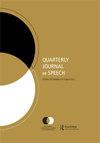“自由帝国”:重新评估美国总统的外交政策修辞
IF 1.3
2区 文学
Q2 COMMUNICATION
引用次数: 0
摘要
帝国是美国外交政策目标的核心,但在美国总统外交政策修辞的研究中很少被直接考虑。我们认为,在进行这类研究时,应该把分析性的注意力放在帝国问题上,它是美国发展和美国民族表达的基础。我们研究了用于理解美国总统外交政策话语的两个历史类别和两个启发式类别,并主张通过将白人、帝国和殖民主义问题置于这些类别的核心来重新聚焦分析。本文章由计算机程序翻译,如有差异,请以英文原文为准。
“An Empire for Liberty”: Reassessing US Presidential Foreign Policy Rhetoric
ABSTRACT Empire is central to US foreign policy aims but is rarely taken directly into account in studies of American presidential foreign policy rhetoric. We argue here that in doing such studies, analytic attention should be paid to questions of empire as foundational to the development of the United States and to articulations of the American nation. We examine two historical and two heuristic categories used to understand US presidential foreign policy discourse and argue for refocusing analysis by placing questions of whiteness, empire, and colonialism at the core of those categories.
求助全文
通过发布文献求助,成功后即可免费获取论文全文。
去求助
来源期刊

Quarterly Journal of Speech
COMMUNICATION-
CiteScore
1.80
自引率
36.40%
发文量
39
期刊介绍:
The Quarterly Journal of Speech (QJS) publishes articles and book reviews of interest to those who take a rhetorical perspective on the texts, discourses, and cultural practices by which public beliefs and identities are constituted, empowered, and enacted. Rhetorical scholarship now cuts across many different intellectual, disciplinary, and political vectors, and QJS seeks to honor and address the interanimating effects of such differences. No single project, whether modern or postmodern in its orientation, or local, national, or global in its scope, can suffice as the sole locus of rhetorical practice, knowledge and understanding.
 求助内容:
求助内容: 应助结果提醒方式:
应助结果提醒方式:


